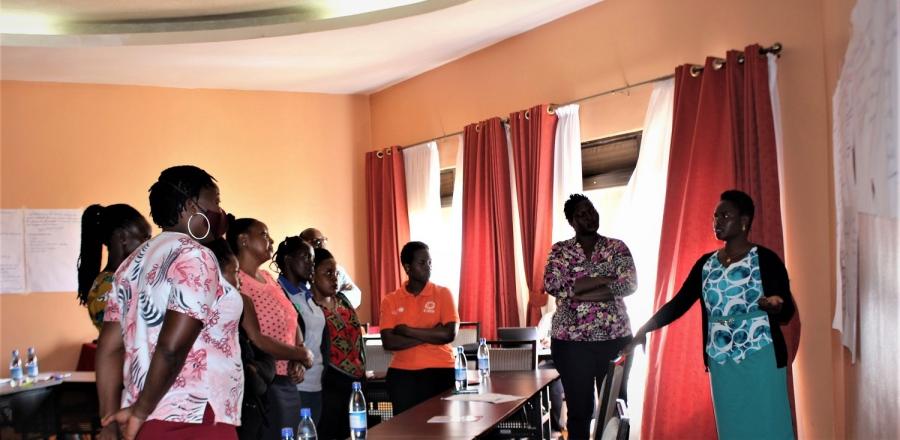
Women at the Centre of Humanitarian Response
With support from OXFAM and UNNGOF, the African Women and Youth Action for Development (AWYAD) in partnership with the Humanitarian platform rolled out two-day program focused on three domains; Importance, and strengthening the knowledge of women humanitarian leaders in humanitarian principles, such that they can ably design and implement humanitarian programs in line with the acceptable standards. The training aimed at building on the already valuable humanitarian knowledge and skills that the local women humanitarian leaders have, and also linking them to international humanitarian standards and principles. Upon successful implementation, a training was organized for participants from the Regional platforms of West Nile, Acholi and South-Western from 23rd – 24th March 2021 at Royal Suites Hotel.
With an expected outcome of ensuring that the women are trained more about increased participation of local humanitarian women in humanitarian leadership in the country. From the training, it was evident that the women leaders are willing to regularly engage their leaders for quality service delivery however, they need a force to reckon for coordination and guidance.
While setting the scene for the training, Ms. Ritah Nansereko, Executive Director of African Women and Youth Action for Development appreciated participant’s efforts to roll out the program that aimed at transforming the humanitarian system to better meet the community needs of those affected by conflict and humanitarian emergencies in Uganda. The training used a blended learning approach and focused on three areas; Leadership, Advocacy and Lobbying and Humanitarian. This was facilitated by REEP International a Company that has vast experience in training and leadership concepts.
From the training, participants developed their regional advocacy agendas for the period 2021/22. These included; Karamoja- Food insecurity, cattle raids, alcoholism, drug abuse and SGBV, West Nile- Early marriage & Teenage pregnancy, Alcohol & drug abuse, women participation in leadership, South Western- SGBV, informal work & instability, under representation of women in leadership and Acholi- teenage pregnancy, Land ownership and staff housing for health workers. They also came up with interventions and relevant timelines per region.
In a nutshell, there is demonstrable growth in the level of humanitarianism among women and communities taking responsibility of their own issues like imbalances on women rights, sexually gender based violence, to demand for quality service and treatment. The vibrancy of the women participating in such trainings brings a new trend but largely explained by their more concerns with improving of the way women are treated in society which affects their daily lives, family and work. From the reflections and sharing, there is commendable work that was done by the facilitators as evidenced by the growing interest amongst citizens especially women leaders who attended to interface with their workmates, leaders so that they can pleasantly find solutions to challenges affecting women in communities. The duty ahead is on how to sustain these gains from the training for the benefit of the vulnerable women and citizens



